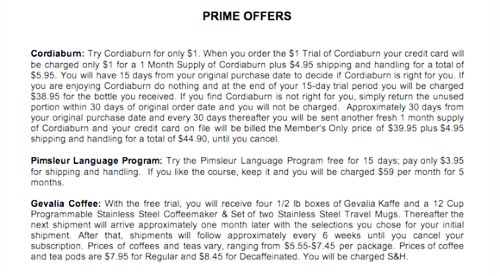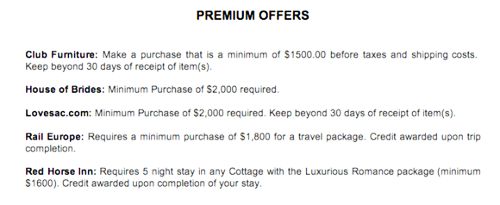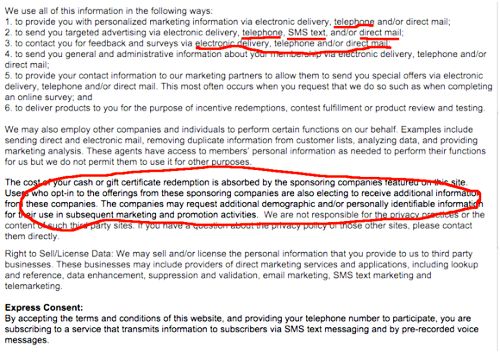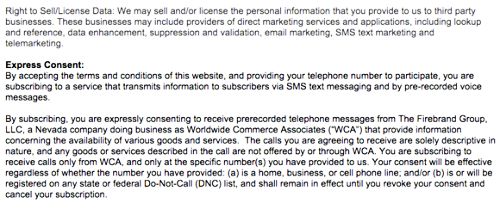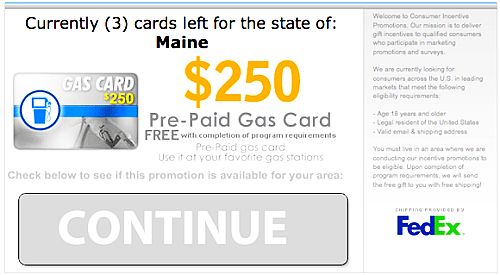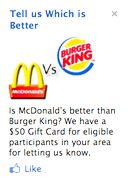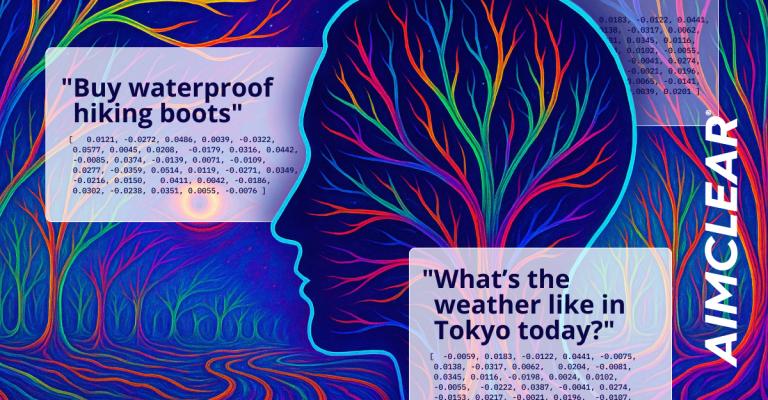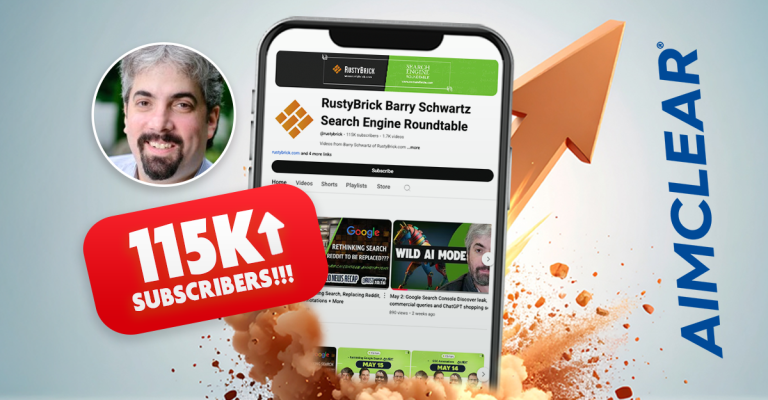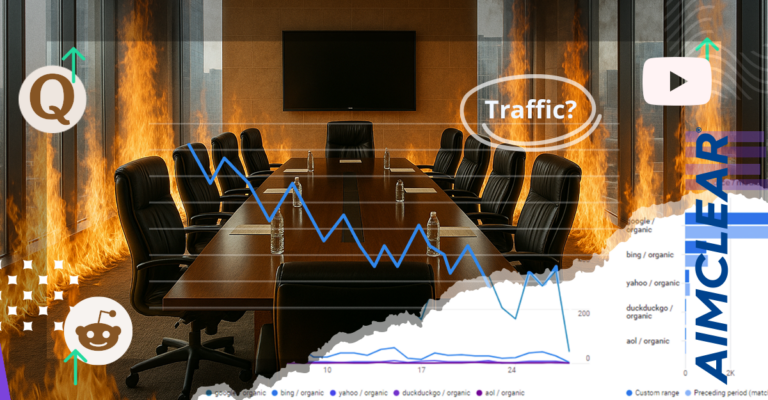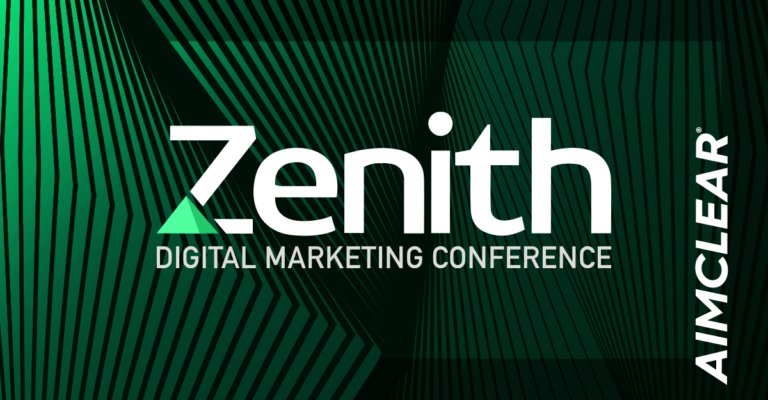But before you scroll down to find out how, I want to tell you that you can fly Southwest for FREE. Yes”Southwest is giving away free tickets in a promo that expires tonight! Or so the ad on the right would seem. It’s got the Southwest Airlines logo and is worded such that you’d think that Southwest is running this Facebook contest.
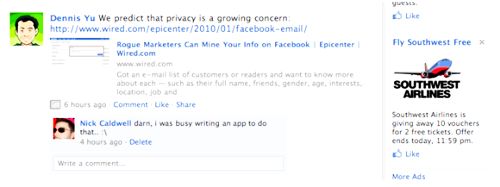
When you click on the ad, you’re taken to a page to claim your prize.
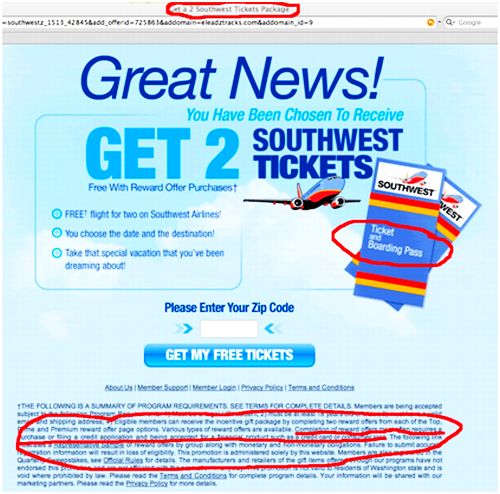
Facebook members who see this page might know it’s not real”that Southwest is not running a promotion, but that someone else is collecting your information to resell and run their high volume email deployment activities.
In the off chance you scroll down the page to the minuscule print, there’s mention of you needing to submit a credit application and be accepted for some financial products. Unfortunately, many people don’t read that fine print. If they did and clicked to view the Official Rules, they’d see that they have to complete several offers within each of 3 categories”in this example, it’s complete some Top Offers, some Premium Offers, and some Prime Offers:
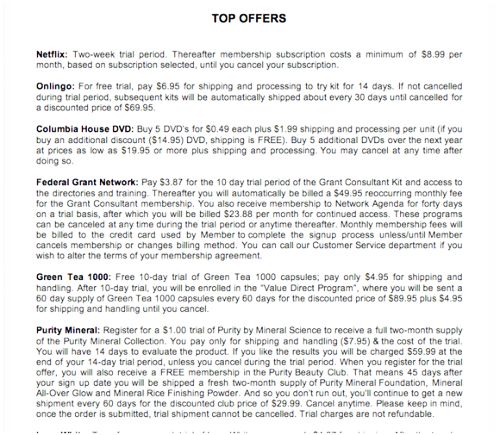
Notice that the “Green Tea 1000” is just $4.95″you only pay shipping and handling. But then you’re billed a recurring $95 for the “Value Direct Program,” aptly named, since it puts value directly into the pockets of these affiliates. Whatever you’re getting, it’s just more “free” stuff, which requires further and further purchases.
Now let’s look at the Prime Offers.
Again, more of the offers called “rebills,” because that’s exactly what they do. They’re also euphemistically called “negative option,” since unless you jump through some hoops, they’ll keep charging your card. Is this evil? Probably not, since Columbia House was sending cassette tapes in the mail even when we were in high school years ago. What’s going on in these Facebook ads is just an updated version of what you see on late night TV.
Let’s look at the Premium Offers.
Ah, now you have to complete several of these offers requiring minimum purchases of at least $2,000. The furniture offer appears cheaper with a $1,500 minimum, but note that it’s before taxes and shipping”and lest we forget, furniture is not cheap.
Let’s take a look at the privacy policy.
You have now given complete permission to these guys to sell your personal information to anyone they like and to message you any time they like via email, phone, SMS, and direct mail. It’s not technically spam, since it’s complying by the law”they are spelling out in detail what they’re going to do with your data if you actually care to read it.
“But wait! There’s more….”
You’re also agreeing to subscribe to a premium SMS service. Have you heard of mobile phone offers like LuvCrush and IQ Quiz?
In trying to get your “free” tickets, you’re now signing up for recurring weight loss products, credit cards, mobile horoscopes, dating sites, anal laxatives, and stuff you’re just dying to buy.
But even if you don’t buy anything, they still get your data. And here’s what else they publically claim they’re going to do with it:
This is part of something called Behavioral Targeting or Retargeting. The affiliate can “cookie” you and now can tie your cookie and IP with other instances where you’ve been seen on the web. If an affiliate wants to, he or she could target people who have just finished a purchase on Expedia.com and show those people ads wherever they go.
It’s amazing personalization that’s done for your benefit to “provide advertising or special offers that we think will interest you.” Large data aggregators, not just folks labeled as “spammers,” are combining their databases together to form a complete picture of you. They have access to public records such as drivers’ license data and phone books”then can tie it with product warranty registrations and forms that you have completed on the web to claim your “free” prize. Scary, huh?
Let’s look at one more example. Here we have “free” gas being offered. It could be some teenager somewhere, since I took this snapshot on January 6th“but maybe it was already January 7th in their country. You’ll see the ad targets Maine residents, though I’m listed in Colorado. The affiliate couldn’t get their dates or locations right”to properly take advantage of the hypertargeting that Facebook allows advertisers. It also means that Facebook’s ad review team let it slip through, too.
Here’s the page you’re sent to.
Better hurry, since there are only (3) cards left for Maine residents”in the same way that (5) people have a crush on you. There’s a FedEx logo in the bottom right, which would seem to imply an endorsement or sponsorship. That’s about as clever as landing pages I’ve seen that say “As seen on Google””which is nothing more than to say they’ve run at least 1 impression on AdWords account.
So if you want to cash in on this totally awesome Facebook advertising bonanza”and MySpace, too, since they’re far more lenient on ads”follow these simple steps:
- Find a few products of legitimate brands. The more legitimate the brand, the more trust you can suck out in parasite fashion.
- Create pages for a free giveaway. Design them too look as official as possible. If you don’t know how to write in complete sentences yet, hire an unemployed journalist on Elance or the like.
- Sign up for an affiliate network. You want to create or promote something called an “email or zip submit.” In fact, you can probably skip the first two steps (which require a lot of effort) and just start promoting what’s already there”free cameras, gas cards, restaurant gift certificates, or whatever is hot right now.
- Set up ads on Facebook. Tailor your ad copy so that it implies that the brand is actually sponsoring it. Use creative copywriting skills to imply that there are only a few left and that it’s for males 50-52 in Duluth, Minnesota only (and make sure that you set your demographic targeting on Facebook to match). If you really want to juice conversions, tell the user that you’re looking for testers of the product (the new Google phone, perhaps) and that testers are allowed to keep the product when testing is done.
- Sit back and collect your money. That is, of course, until you get in trouble, since the FTC will eventually catch up to you.
What about monetization?
Let’s break down the mechanics of how a few bad-apple-affiliates buy traffic on Facebook.
- These inappropriately personalized ads get a much higher CTR than most ads– perhaps 0.3% versus perhaps 0.07%. That allows them to pay as little as 10-15 cents a click, instead of 70 cents to a dollar.
- With an email/zip submit, as these offers are called in industry parlance, there is a multiple page submission process, and the affiliate is paid upon completion of just the first page (about $1.50 a lead, plus or minus).
- Thus, it’s a shared risk between the affiliate (whoever is buying the ads on Facebook) and the underlying advertiser (the ad network or advertiser controlling the offers).
- The affiliate has to ensure that their cost per lead is below their revenue per lead, while the advertiser is risking that the affiliate’s conversion rate is above their projection– that a certain percentage of the folks who complete the first page will go on to sign up for one or multiple offers.
- Even if only 5% of these leads do sign up for one of the offers mentioned here, that’s a cost per lead of only $30 (which is $1.50 divided by 5%).
- If they sign up for 5 or 6 offers, that lead can be worth a couple hundred dollars, making this very profitable from the advertiser’s standpoint.
From the affiliate’s angle…
- If he/she’s being paid $1.50 a lead and 20% of the clicks become a lead (provide their email address), then his revenue per click is 30 cents.
- If his cost per click is 15 cents and he’s earning 30 cents, then he’s doubling his money.
- If he buys a million impressions a day (which is quite small), at a CTR of 0.3%, he’s generating 3,000 clicks and earning 15 cents a click, for a profit of $450 per day.
- If he buys 50 million impressions a day, then he’s at $22,500 in profit per day off gross revenue of $45,000 per day.
Thus, you can see how it’s possible to come close to six figures a day, especially if distributed across Google, MySpace, media buys, Facebook, and other channels. The question on how much money is being made on Facebook through these offers– nobody really knows. But if you can determine how many impressions are being served through the self-serve platform and then estimate the percentage of ads that are of this type, you’ll get pretty close.
Why does this matter to us?Jonah Stein coined the term virtual blight, referring to how a few bad ads cause a negative externality on legitimate publishers. Users might begin to distrust all ads. Milk whatever analogy you like”Little Albert afraid of all white things for life, a cat burned by a hot stove or the vacant drug house that brings down property values in the whole neighborhood.
How about this ad? Do you trust it?
These are survey ads that affiliates sometimes create on any current topic. Doesn’t matter which.
- Who will win the Super Bowl?
- Should the US withdraw from Iraq?
- Do you think people play Farmville too much?
Or it can be in the affirmative on causes that polarize people:
- Vote now to stop gay marriage!
- Save innocent lives”support banning cell phones while driving.
- Stop Obama’s nationalized heath care coverage (run this in the right states, please).
Then send them to one of those pages”first, a page where they’re prompted to enter their email and then the second page where they enter personal details” since we have to verify you are who you say you are, in case there are spammers out there who will try to rock the vote. Then, get people excited”maybe hot under the collar a little. That’s how you’d get them to convert.
Facebook, like Google and other advertising platforms, has been doing their best to keep up with spammers. However the very nature of behavioral targeting opens fascinating and difficult new avenues for a small percentage of affiliate-spammers to exploit.
Consumers should be wary when clicking on Facebook Ads and read the fine print. Meanwhile some legitimate advertisers, who play by the rules, are growing concerned that the value of this massive and emerging channel might erode do to consumers’ lack of trust.
Opinions expressed in the article are those of the guest author and not necessarily AIMCLEAR.
